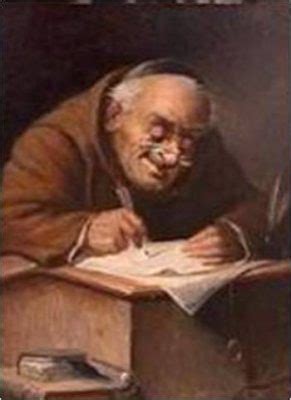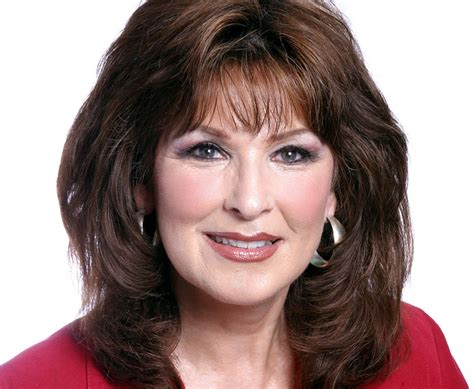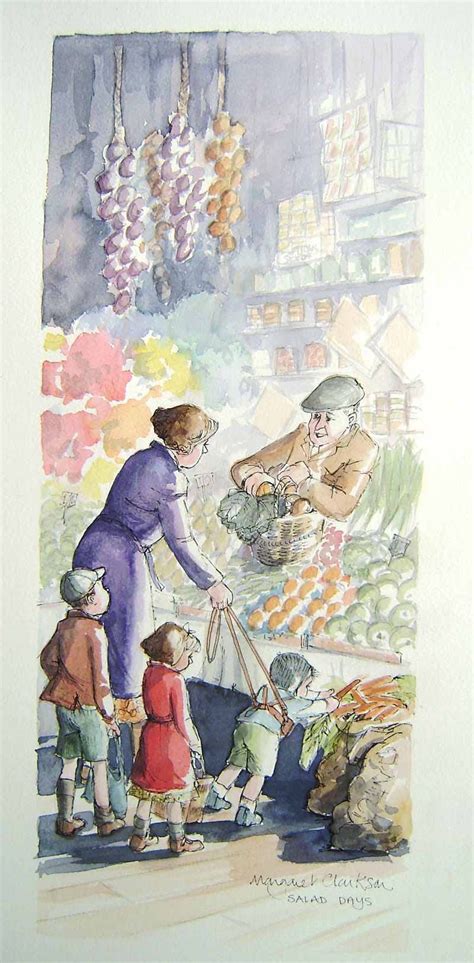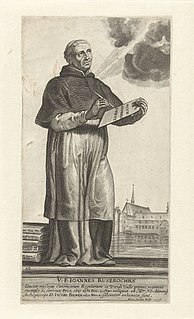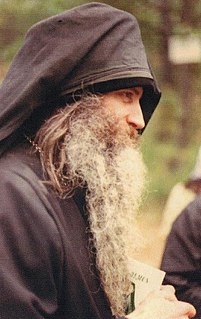A Quote by Jean-Pierre de Caussade
We must offer ourselves to God like a clean, smooth canvas and not worry ourselves about what God may choose to paint on it, but at each moment, feel only the stroke of His brush.
Related Quotes
We may have created this projection of what God should be, as this judge or test, but the fact is, the only way we know about God is by knowing ourselves in some way. So God must be in ourselves-you can't deny that. If you say that God is somewhere else, which is what a lot of religions say, I just can't deal with it. I guess it's the difference between Buddhism, Christianity, and Judaism, or something.
...a human being not only can choose but... he must choose... for in this way God retains His honor while at the same time has a fatherly concern for humankind. Though God has lowered Himself to being that which can be chosen, yet each person must on his part choose. God is not mocked. Therefore the matter stands thus: If a person avoids choosing, this is the same as the presumption of choosing the world.
The reason to forgive ourselves is not because we feel like it or because we want to see ourselves as blameless but because we limit what we can receive from God when we hold on to our past. He wants to do so much more than we could ever imagine. Forgiving yourself starts with believing in God's incredible love for you and accepting His amazing grace and mercy. If God Almighty can forgive us who are we to hold on to what He has not only forgiven but forgotten
We need to remember to teach our children that solitude can be a much-to-be-desired condition. Not only is it acceptable to be alone; at times it is positively to be wished for.....In the silence we listen to ourselves. Then we ask questions of ourselves. We describe ourselves to ourselves, and in the quietude we may even hear the voice of God.
On accepting adversity in our lives: Always it is initiated by an act of will on our part; we set ourselves to believe in the overruling goodness, providence, and sovereignty of God and refuse to turn aside no matter what may come, no matter how we may feel. I mistakenly thought I could not trust God unless I felt like trusting Him. Now I am learning that trusting God is first of all a matter of the will. I choose to trust in God, and my feelings eventually follow.
Detachment from things does not mean setting up a contradiction between 'things' and 'God' as if God were another thing and as if creatures were His rivals. We do not detach ourselves from things in order to attach ourselves to God, but rather we become detached from ourselves in order to see and use all things in and for God.
God is dead. God remains dead. And we have killed him. How shall we comfort ourselves, the murderers of all murderers? What was holiest and mightiest of all that the world has yet owned has bled to death under our knives: who will wipe this blood off us? What water is there for us to clean ourselves? What festivals of atonement, what sacred games shall we have to invent? Is not the greatness of this deed too great for us? Must we ourselves not become gods simply to appear worthy of it?
God is dead. God remains dead. And we have killed him. Yet his shadow still looms. How shall we comfort ourselves, the murderers of all murderers? What was holiest and mightiest of all that the world has yet owned has bled to death under our knives; who will wipe this blood off us? What water is there for us to clean ourselves?
You must pray for yourself constantly. How could it be otherwise? We worship God by believing in Him, trusting Him, and loving Him wholeheartedly - and we can attain to that only through prayer. The sole object of our being here is that we may grow like Him - and we can do that only through prayer. The more we pray for ourselves the more power will our prayers have for any other purpose whatever; so praying for ourselves is the reverse of selfishness - it is truly glorifying God.
Everything in this life passes away — only God remains, only He is worth struggling towards. We have a choice: to follow the way of this world, of the society that surrounds us, and thereby find ourselves outside of God; or to choose the way of life, to choose God Who calls us and for Whom our heart is searching.
